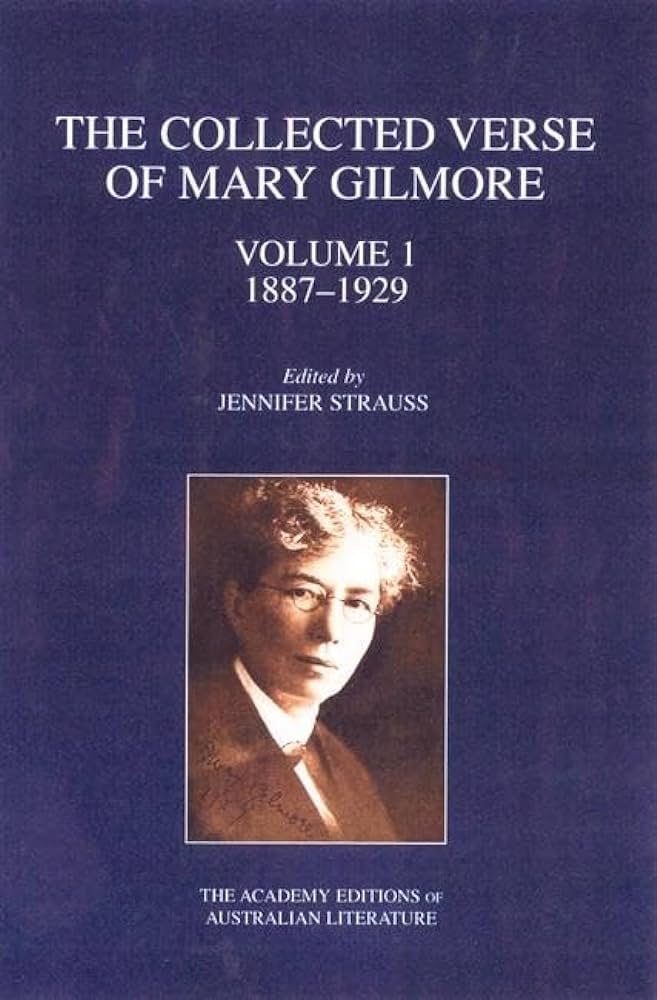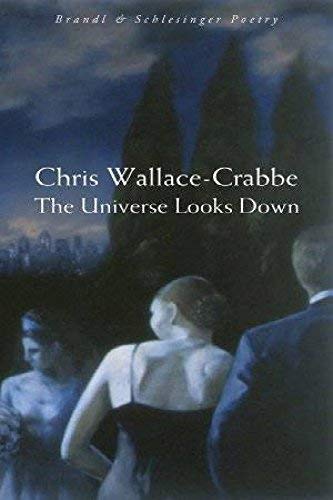Poems
The Collected Verse Of Mary Gilmore: Volume 1 1887–1929 edited by Jennifer Strauss
Mary Gilmore is one of the most acclaimed figures in Australian writing. A cultural icon, she appears in important paintings and sculptures and on postage stamps, not to mention the ten-dollar note. Her biography has been published, her letters collected, and now the first volume of her complete poems, edited by Jennifer Strauss, has appeared in the prestigious Academy Editions of Australian Literature. No other Australian poet except Henry Lawson has received quite the degree of attention that Gilmore has been accorded. Longevity certainly had something to do with her fame: she was a living link between the colonial Australia she was born into and the Australia of the 1960s that saw her passing. Like Lawson’s, her life and work are written into Australian history; and she too is inextricably associated with the legend of the 1890s. She never quite achieved Lawson’s popularity as a writer, but this edition makes it clear that her fame was truly earned, not merely accrued. No literary reputation is ever finally fixed, or immune to criticism, but this book will help us to understand why Gilmore, Australia’s foremost woman poet during the first half of the twentieth century, came to be considered a national treasure.
... (read more)The Universe Looks Down by Chris Wallace-Crabbe & Read It Again by Chris Wallace-Crabbe
Chris Wallace-Crabbe’s essay ‘Poetry and the Common Language’, in his collection Read It Again, begins: ‘If there is one thing we can say about poetry, it is this: like it or not, poetry turns out to be something special, an intensified bag of tricks with certain rules of its own.’ The deceptively casual style of the writing underscores its argument about the centrality of ‘voice’ in any poem (or essay) worth its salt: ‘interest, in poetry, is not only interesting, to put it very mildly; it also adds value. It lifts the game; often because it artistically combines an air of untidy casualness with lightly strategic effects which displace or realign us as we read.’
... (read more)Being from a young nation you find that dawn beguiles you
onto the exhausted saltmarsh,
miles of morose vacuity clad
in couch grass, cottonweed, random puddles, wire
and the odd, triumphant
flourish of pampas grass
featherily trying to tell dead factories,
Look here,
something fans, even at the far edge of Europe
where large gulls crowd and abruptly dip, although
the fish have all gone home to bed.
... (read more)
Well, it’s been waiting all these years, like a poem
asleep in the word-hoard, its prince to come,
kiss at the ready, and bloom it forth to the world:
or like a kouros, hauled with pain
from the gnarling waters, smiling gaze intact,
its maker long put out to sea:
or like that ‘orient and immortal wheat’ that waved
before Traherne, a child bereft,
and set him claiming Paradise again:
yes, it’s here for the restless heart –
The American Express Gold Card Dress – and all
may now be well at last.
... (read more)Come – no grazed knee, no tears, no –
no fear of darkness in the singing wood.
Hear the threnody written on the wind:
a lament not for lostness, no, but for the slow
path homewards, the pebbles which guide us:
... (read more)The time’s come round again, blind pomegranates shine
In their dark bins like tawny Tuscan wine.
... (read more)There is no God, I was made in this man’s image:
those slate-dark eyes of his are mine,
the dented bridge of our his-my nose.
I laugh with his rasping cackle in me.
I walk with his stooping, trudging gait,
swearing his ‘Jesus bloody Christ’
in a sudden fist-curl of temper.
My right ear points like a flesh-antenna as his does,
and being my father I bear his name.
Haphazardries of kin passed on from birth
that to see him wizened on his cancer bed,
his insides turned to water,
... (read more)for Craig Sherborne
‘Grief wrongs us so.’
Douglas Dunn
To the sea we bear our fathers in state –
or what they’ve done to them: the square conversions.
Surf mild as receding tides,
we slump in dunes with our burdens,
... (read more)


